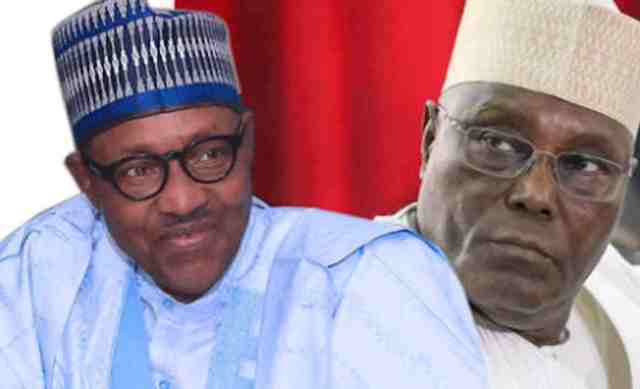The former vice president, Mr. Atiku Abubakar failed to convince the Presidential Election Petition Tribunal sitting in Abuja to overturn President Muhammadu Buhari’s victory in the Feb. 23 general election.
Atiku was the candidate of the People’s Democratic Party (PDP) in the February 23, 2019 presidential election.
The PDP and its candidate, Atiku had filed a joint petition that challenged the president’s victory in the election. However, the tribunal held that the petitioners failed to discharge the burden of proof expected of them.
The judgment hinged on five issues raised by the petition which was whether Buhari was qualify to contest the election. Also, the petitioners prayed the tribunal to decide whether the alleged false information by the president on his educational qualification amounted to perjury. In addition, they invited the tribunal to decide whether the Independent National Electoral Commission (INEC) did not transmit the results of the election electronically via its central server.
The fourth issue was whether the respondents did not benefit from some electoral malpractices. Specifically, the PDP and its candidate alleged widespread rigging, over voting, violence intimidation perpetrated by their agents and security forces. Lastly, the petitioners had urged the tribunal to hold that the president did not secure majority lawful votes.
Delivering judgment, Justice Mohammed Garba, Chairman of the five-man tribunal faulted the petitioners for failing to discharge its burden of proof. Garba affirmed that the petitioners were unable to satisfactorily provide evidence to substantially prove the allegations put forward.
On the alleged non-qualification of the president to contest the election, the tribunal ruled against the petitioners. It noted that Buhari was duly screened and certified to contest the election by INEC.
Burden of proof weighed heavy on Atiku, PDP
Further, he was said to have met the requirement and guidelines set by the electoral body.
The second point was the allegation of false information on his education qualification. Garba held that evidence placed before the court showed that Buhari obtained Secondary School Certificate. Additionally, the judge affirmed that the president enlisted in the country military and steadily rose to the rank of Major-General.
He added that the Constitution and the Electoral Act 2010 had also placed powers on the electoral body to decide alternative qualification for those aspiring to contest elective positions in the country.
Third, the petitioners sought to determine whether the results of the general election were transmitted electronically to INEC’s central server. On this, the tribunal ruled that no existing law had approved the use of such technology in the electoral process. Further, it noted that the laws only mandated the manual collation of election results.
On the allegation of widespread malpractices and violence disruption of the election, Garba held that the petitioners failed to bring specific evidence to substantiate those claims. He noted that negligible numbers of the 62 witnesses called by the petitioners highlighted issues that bordered on electoral fraud. Further, he averred that said allegations of electoral made by the petitioners were criminal in nature. Therefore, the allegations required to be proved beyond reasonable doubts.
The judge also held that neither the president nor the All Progressive Congress (APC) could be held to account. This is especially for the alleged ballot box snatches and other cases of violence allegedly carried out by individuals.
Buhari’s motion on Atiku’s citizenship also struck out for lacking merit
“The respondents cannot be held culpable for the alleged overzealousness of some security forces accused to have unleashed terror on voters and supporters of the petitioners during the election. There is no such thing as transferring the transgression of an alleged thug or security agents to the respondents who had no direct involvement with whatever crime alleged about.
“Also, it is expected that the petitioners should have brought witnesses who were at the spot in all of the polling unit where these alleged malpractices and violence were committed. In the circumstance, the petition lacks depth as the petitioners were unable to discharge the burden of proof on all the issues before us.
“The petition is therefore dismissed for lack of competence. All parties to bear their costs,’’ Garba ruled.
The tribunal also struck out a motion filed by the president challenging Abubakar’s citizenship. Garba held that Buhari ought to have approached the court with a cross appeal on the matter.
He therefore, dismissed the motion for lacking in merit.
President Buhari was declared the winner of the 2019 presidential election after scoring 15,191,847 votes. On the other hand, his closest challenger, Atiku garnered 11, 262,978 votes.
1stNews























































